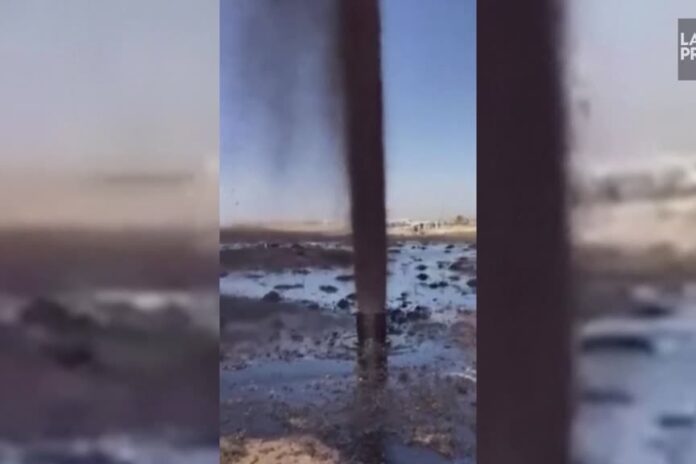(Kuwait) Kuwait’s national oil company announced a “state of emergency” on Monday after an oil spill, an incident denounced as a “recurring problem” in the Gulf country by environmental activists.
“A state of emergency has been declared due to an oil spill in the west of the country,” the Kuwait Oil Company said in a statement.
The leak took place in an uninhabited area, without causing any injuries, and “production was not affected”, company spokesman Qusai Alamer told AFP, without specifying the exact location. of the incident.
Kuwait is one of the world’s leading crude oil producers. Nearly 90% of its revenue comes from oil.
“No toxic fumes were reported at the site,” according to the spokesperson.
Kuwaiti newspaper Al Rai posted a video on Twitter showing a large amount of oil gushing out of a pipe in arid terrain.
Kuwait Oil Company said it had sent teams to the scene to determine the source of the leak and contain it.
According to the Kuwaiti environmental activist, Khalid Al-Hajire, head of the organization Greenline, the information provided at this stage by the company does not make it possible to assess the extent of the damage to the environment caused by the leak.
But this type of incident is a “recurring problem due to […] non-compliance with safety rules and those of environmental protection”, he told AFP, denouncing “the ‘lack of firmness from the National Environment Authority towards the oil sector’.
A key member of the Organization of the Petroleum Exporting Countries (OPEC), Kuwait currently produces around 2.7 million barrels per day.
His national company had reported several oil leaks in recent years.
In 2017, two oil slicks were identified off the coast of the country in the space of a few days.
“The pollution we constantly see in the air, on land and in the sea proves that the oil industry does not attach enough importance to environmental protection,” Khalid Al-Hajire said.
According to oil expert Abdulsamee Bahbahani, the leak could have come from an abandoned oil well.
“I think the well was not properly capped, which led to erosion of the conduits and the cement lining, as well as an increase in pressure,” he told Reuters. AFP, warning that a spark could cause a fire.












